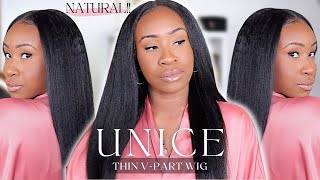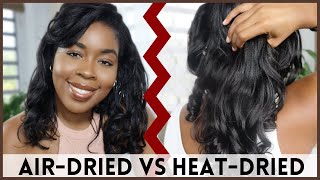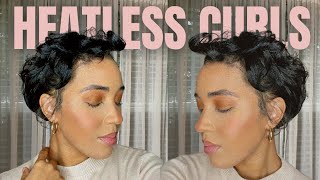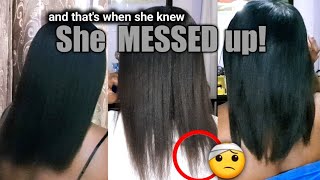Top 3 Sealing Oils For Relaxed Or Chemically Treated Hair
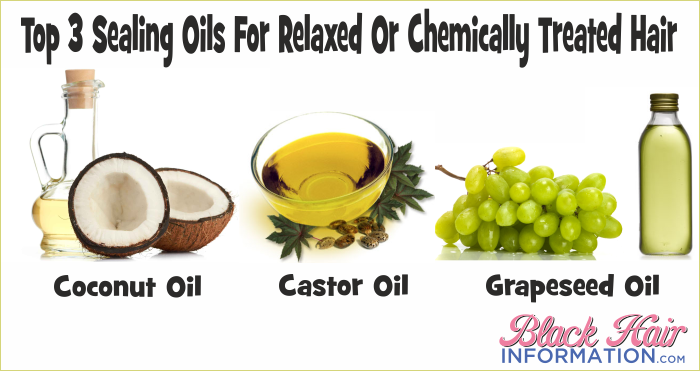
Oils, oh oils. How do we healthy hair care lovers love thee!
Oils are a major part of any healthy hair care and especially for those us who have relaxed or chemically treated hair. Why you ask? Well, due to the dryness that comes with having chemically treated hair we have to be diligent about infusing moisture into our strands and making sure that it stays locked in.
This is where oils come in. While oils* (with the exception of a few) cannot moisturize our hair in the truest sense of the word, they are vital in “sealing” in the moisture into our strands.
Sealing is a huge deal in any healthy hair journey because without a suitable oil to seal in moisture you may only have moisturized hair for an hour versus a whole day.
Oils, even all natural ones come in different consistencies from regular ‘oily’ consistencies to thicker more ‘syrupy’ ones and even hair butters* which are solid at room temperature. A lot of the time the consistency may determine what you use it for or in fact which point during your hair regimen to use it.
For instance, if you have ultra fine thin strands you will know what a thick textured oil or butter will be likely to weigh your hair down so it may be wiser to use it added to your deep conditioner* or for sealing just the very ends of your hair. And conversely, if you have thicker coarser strands, it would make more sense to seal your hair with a heavier oil rather than a light one.
But with so many oils* that are available in the average beauty shop shelves, how does one know which oils to choose? Well, wonder no more because following we have compiled the top three most beneficial sealing oils for relaxed or chemically treated hair.
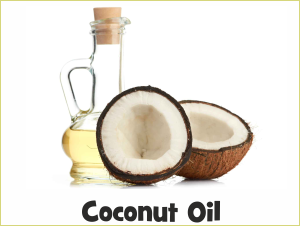 Coconut Oil* – “The “Do-It-All”
Coconut Oil* – “The “Do-It-All”
Coconut Oil is the only oil that moisturizes the hair like water – One of the major attributes of coconut oil when it comes to hair care is that it moisturizes hair strands by penetrating the strand 100 percent, just like the greatest moisturizer, water.
Next to olive oil*, coconut oil is one of the only oils* that can moisturize your strands. This means that if you do not want you fresh blowout to frizz up, you can simply dab some coconut oil* on your hair.
The oil can put moisture into your hair sans the poofiness that can comes from using a water/humectant- based moisturizer.
You can’t use it replace a standard wash and DC of course but it is a very useful oil to have in your arsenal.
It reduces hygral fatigue in hair – First, I’m going to give a quick rundown of what hygral fatigue is. Hygral fatigue is a phenomenon that occurs when the hair strand swells due to being doused in water and de-swells as it is drying. This process of expansion then contraction can cause serious damage to the hair strand over time.
You may be wondering, how does coconut* oil fit into all of this? Well, coconut* oil highly reduces the occurrence of hydral fatigue. Since coconut oil attaches to proteins in our strands, this helps create a barrier that prevents the hair strands from absorbing too much water and swelling to much.
To use coconut oil to prevent hygral fatigue, apply a good amount of coconut oil to your hair as a prepoo either overnight or at least an hour before washing your hair to gain this benefit.
It reduces protein loss – Every time we manipulate our hair, whether it is through deep conditioning* or combing, we lose protein from our strands. Mechanical damage is one of the main reasons for the wear and tear that causes thinness and split ends over time.
As we mentioned above, coconut oil has this awesome ability to attach to the proteins within our strands and can also fill in holes of missing protein. With constant use of coconut oil, you are left with a thicker strand with minimal damage to the cuticle layer.
This is one of the main reasons why coconut oil is mistaken as a protein, but in actuality coconut oil is not a protein at all. To gain this benefit of decreased protein loss, apply coconut oil to wet or dry hair everyday or every other day before manipulating.
Coconut oil increases shine/sheen in the hair – Coconut oil is used worldwide for its ability to make hair appear shinier. This is especially good for those of us who prefer to have a silicone free regimen, but want have the shine that silicones offer.
You can apply the coconut oil to wet or dry hair, as needed, to add a hint of bling to your hair.
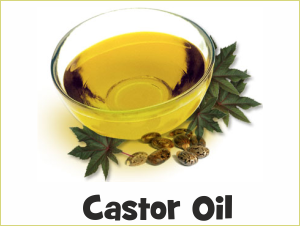 Castor Oil – “The Heavy Weight”
Castor Oil – “The Heavy Weight”
Castor gives the appearance of thicker hair – One of the biggest benefits that most mention when talking about castor oil is its ability to create thicker hair.
Most who have had success when using castor oil have experienced an increase in the density of their individual strands and the volume of their hair as a whole.
To gain this benefit, apply a small amount of castor oil to your hair every day or as needed over your moisturizer to see results.
It is excellent at sealing in moisture – Due to the thickness of castor oil*, it is excellent at sealing moisture into the hair and keeping it there. This means that your hair can be moisturized for a longer period of time (some have had moisturized hair for up to a week) without the need for constant re-moisturizing.
It increases hair growth – Now, while this claim has not been proven scientifically, anecdotal reports from many women who have had success with castor oil and its ability to increase hair growth lends credibility to the claim.
Even though this might not be an occurrence that is set in stone, it still does not hurt to give it a try. Just apply the castor oil to your scalp daily or every other day to possibly gain more length.
It helps with hair re-growth – Again this is a claim that has not be proven scientifically but it’s difficult not to sit up and take notice when you see the anecdotal reports from ladies having success in regrowing hair lost using oil mixtures that usually include castor oil in the mix.
It’s certainly not a cure for long term baldness but if your follicles are still capable of producing hair then castor oil* can be used to speed up the process and restore your tresses.
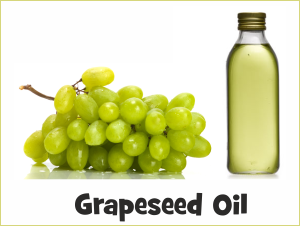 Grapeseed Oil – “The Ceramide Provider”
Grapeseed Oil – “The Ceramide Provider”
Grapeseed oil is extremely rich in ceramides – Ceramides are widely known to provide moisture and strength within the hair strand and to create a smooth barrier along the cuticles of the hair.
Grapeseed oil is one of the top ceramide oils, containing over 73% of ceramides. This is why a lot of us with relaxed/chemically-treated hair use grapeseed oil and tout it as one of the best sealing oils.
For a boost of ceramides in your regimen, just add a tablespoon or so to your conditioners, cleansers, moisturizers, etc. Otherwise you can use it as a standard sealing oil after moisturizing.
It is an extremely lightweight oil – For those of us who have relaxed hair, especially fine relaxed hair, one of the problems that we face is the possible weighing down of our strands with the products that we use.
Because it can provide great sealing power after our hair moisturizers without compromising the volume is another great reason why many of us with chemically-treated hair use grapeseed oil*.
To use, apply a small to medium amount of grapeseed* oil to strands after moisturizing.
Grapeseed oil is used as a natural heat protectant* – A lot of women use grapeseed* oil as a heat protectant* due to its high smoke point of 450 degrees farenheight.
Now, even though it is not officially recognized as a heat protectant, studies have shown that when grapeseed oil* was applied to the hair it blocked the transfer of heat damage from appliances such as flat irons* from entering the cortex of hair strands.
To use as a protectant, apply to damp hair and let it work for 30 minutes then use your heat appliances.
So that’s it guys! I hope that this information has given you more insight into these great sealing oils which I hope will provide you with excellent benefits over the course of your hair journey.

